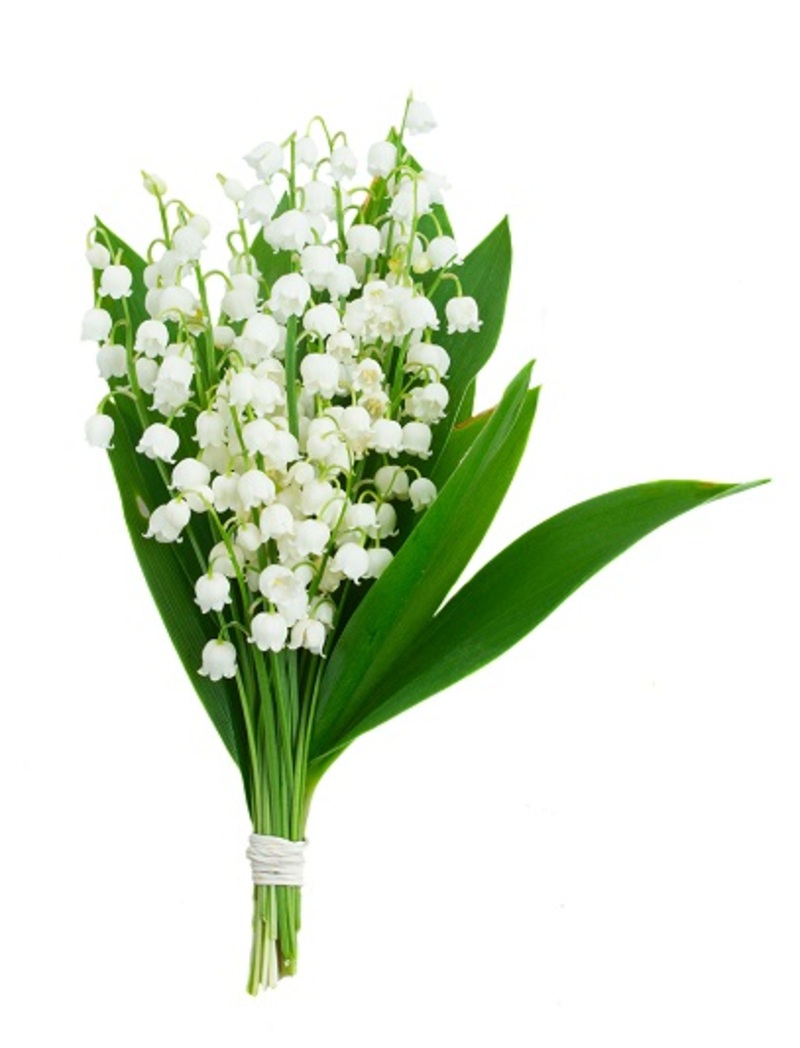Unlock Your Garden's Potential: Orchid Care Guide
Posted on 15/08/2025
Unlock Your Garden's Potential: Orchid Care Guide
Orchids are renowned for their stunning beauty and remarkable diversity, making them a treasured addition to any garden or indoor space. For gardeners seeking to elevate their plant care knowledge and unlock their garden's full potential, mastering the art of orchid care is key. This comprehensive guide explores everything you need to know about growing, nurturing, and showcasing healthy, thriving orchids. Whether you're a beginner or an experienced horticulturist, this orchid care guide will help you cultivate these captivating blooms.
Why Choose Orchids for Your Garden?
Orchids are much more than just exotic decorative plants. With over 25,000 species, they offer an incredible variety of shapes, colors, and scents. They can transform your garden with elegance and offer unique benefits:
- Long-lasting blooms: Many orchid species produce flowers that last for weeks or even months.
- Air purification: Orchids help purify the air by absorbing toxins and releasing oxygen.
- Versatility: They can be grown indoors or outdoors, and in a multitude of containers and arrangements.
- Low maintenance: When given proper care, many orchid varieties are surprisingly easy to grow and maintain.

Types of Orchids Perfect for Home and Garden
Understanding the different orchid varieties will help you select the best ones for your location and lifestyle. Some of the most popular and easy-to-care-for orchids include:
- Phalaenopsis (Moth Orchid): Known for their stunning blooms and resilience, Phalaenopsis orchids are ideal for beginners.
- Cattleya: Prized for their large, fragrant flowers, these orchids prefer bright light and moderate care.
- Dendrobium: These versatile orchids come in a variety of forms and can adapt to different growing environments.
- Oncidium: Sometimes called 'Dancing Ladies', these orchids thrive in bright, indirect sunlight and are known for their intricate flowers.
- Vanda: With vibrant flowers, vandas require high humidity and plenty of light.
Tip: Start with easy-care orchids like Phalaenopsis if you are new to orchid gardening.
Essential Orchid Care: Unlocking the Secrets
1. Choosing the Right Location
To ensure your orchids thrive, select a location that mimics their natural habitat. Most genera of orchids are epiphytes, growing on trees in filtered light and moderate temperatures.
- Light: Place your orchids where they get bright, indirect sunlight. Too much direct sun can scorch the leaves, while too little light hampers bloom production.
- Temperature: Orchids usually prefer daytime temperatures between 60-75?F (15-24?C) and cooler nights. Avoid sudden drafts and temperature fluctuations.
- Humidity: Aim for 50%-70% humidity. Use a humidity tray or room humidifier for indoor orchids if needed.
2. The Perfect Potting Mix
Unlike traditional plants, orchids do not thrive in regular soil. Their roots need air circulation and excellent drainage.
- Bark Mix: The most common orchid medium, providing support and good airflow to roots.
- Sphagnum Moss: Retains moisture well, ideal for orchids needing higher humidity.
- Charcoal and Perlite: Often used in conjunction with bark for improved drainage and aeration.
When repotting, gently remove old potting medium and trim dead roots to encourage healthy growth.
3. Watering Your Orchids
Proper watering is crucial for orchid health and robust flowering. Both overwatering and underwatering can stress the plant.
- Frequency: Most orchids prefer to dry out between waterings. Water once a week, but adjust based on your environment and the season.
- Signs You Need to Water: Potting mix feels dry and roots look silvery or white.
- How to Water: Water thoroughly until water drains from the bottom of the pot. Avoid letting the orchid sit in standing water.
Tip: Use tepid, non-chlorinated water for best results.
4. Fertilizing for Lush Blooms
Orchids have specific nutrient needs to encourage vibrant flowers and strong roots.
- Type: Use a balanced orchid fertilizer (20-20-20) or one designed for blooming houseplants.
- How Often: Feed your orchids every 2-3 weeks during active growth. Reduce feeding in winter or dormant periods.
- Technique: Dilute the fertilizer to half strength to prevent root burn.
Remember: Less is more with orchid fertilizer - too much can damage your plants.
5. Pruning and Repotting Orchids
Maintaining your orchid's health involves regular pruning and occasional repotting to renew growth and remove diseased parts.
- Pruning: Remove spent flower spikes and any yellow or shriveled leaves with sterilized scissors.
- Repotting: Repot every 1-2 years, or when the medium has broken down. Choose a pot only slightly larger than the root ball.
Orchid Pests and Diseases: Prevention and Treatment
Even with optimal care, orchids can occasionally fall victim to pests and diseases. Early detection and intervention are vital for protecting your precious plants.
- Common Pests: Watch for signs of aphids, spider mites, and mealybugs. Treat infestations promptly with insecticidal soap or horticultural oil.
- Disease Prevention: Ensure good air circulation and avoid overwatering to prevent fungal infections like root rot and leaf spots.
- Sanitation: Always use clean tools and wash your hands before handling different plants to prevent cross-contamination.
If your orchid shows persistent signs of stress, isolate it from other plants to halt the spread of pests or disease.
Encouraging Orchids to Flower Again
One of the joys of orchid gardening is witnessing their spectacular blooms. If your orchid is reluctant to flower, try these tips:
- Correct Lighting: Ensure your orchid receives the right amount of light for its species. Too little light is a common reason for no blooms.
- Cool Night Temperatures: Many orchids initiate flowering when exposed to cooler night temperatures (about 10?F lower than daytime).
- Appropriate Feeding: Switch to a "bloom booster" fertilizer with higher phosphorus during the flowering season.
- Let Them Rest: Some orchids need a dormant period after flowering before they bloom again. Reduce watering and stop fertilizing during this phase.
Patience and attentive care will reward you with beautiful orchid flowers year after year!
Indoor vs. Outdoor Orchid Care: Adapting Techniques
Caring for indoor orchids is slightly different compared to tending to orchids outside.
Indoor Orchid Tips
- Stable Environment: Maintain consistent temperature and humidity with a humidifier or pebble tray.
- Watch for Drafts: Avoid placing orchids near heating or cooling vents.
- Windows: East or south-facing windows are ideal for most orchids, with a sheer curtain to filter direct sunlight.
Outdoor Orchid Tips
- Protect from Elements: Shield orchids from harsh afternoon sun and heavy rain.
- Secure Orchids: Mount epiphytic orchids onto trees or place in slatted baskets for optimal air flow.
- Seasonal Adjustments: Bring orchids indoors when evening temperatures drop below 55?F (13?C).
Display Ideas: Showcasing Your Orchids
Show off your blossoming success with creative display options for your treasured orchid collection:
- Hanging Baskets: Perfect for trailing species and maximizing vertical space.
- Glass Terrariums: Offer a microclimate for small orchids and add visual intrigue to your decor.
- Orchid Trees: Mount different orchid varieties on a large, decorative branch for a stunning living sculpture.
- Tabletop Arrangements: Group mini orchids in attractive pots for a chic centerpiece.
Remember, orchids are living art - experiment with arrangements to best showcase their beauty!

Frequently Asked Questions About Orchid Care
How often should I water my orchids?
Generally, watering once a week is sufficient. However, adjust frequency depending on the species, environment, and season. Overwatering is one of the most common mistakes in orchid care.
Why are my orchid leaves turning yellow?
Yellow leaves may result from overwatering, excessive light, or natural aging. Check the plant's roots and light conditions to diagnose the issue promptly.
How do I encourage rebloom on my orchid?
Provide adequate light, adjust temperature for a cool night rest, and use a balanced fertilizer. Some varieties, like Phalaenopsis, rebloom more readily than others.
Can orchids be grown outdoors all year?
This depends on your local climate and the orchid species. Most orchids are sensitive to cold and need to be brought indoors when temperatures drop below 55?F (13?C).
Master Orchid Care: Your Garden's Secret to Splendor
Unlocking your garden's potential means exploring new plant varieties and cherishing the unique character each species brings. Orchids, with their astonishing range and vivid beauty, can elevate any home or outdoor space into a botanical masterpiece.
By understanding orchid basics--light, water, temperature, humidity, feeding, and pest management--you can nurture these enchanting flowers for years. Mastering orchid plant care may take patience and observation, but the reward is a garden blooming with radiant, exotic elegance.
If you're ready to bring your garden to life with these spectacular flowers, use this complete orchid care guide as your trusted companion. Experiment, learn from your experience, and let your orchid collection become the jewel of your gardening achievements!
- Remember: Every orchid species is unique--observe their preferences for optimal results.
- Don't be afraid to try new types and creative arrangements. Unlock your garden's true beauty with orchids!
Ready to transform your gardening journey? Begin today with proper orchid care, and watch your garden reach its fullest, most vibrant potential!
Latest Posts
Top Practices for Maintaining Your Cut Flowers' Freshness
Low Maintenance Plants to Brighten Your Office Space
8 Sunflower Revelations That Will Transform Your View







